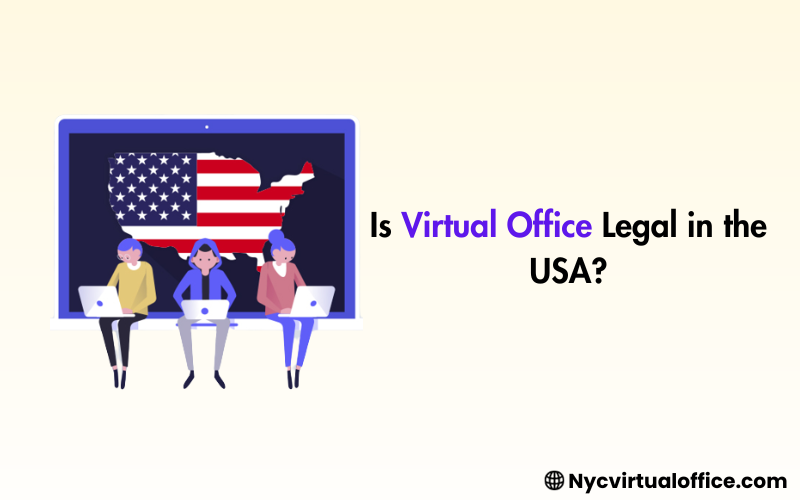The concept and work culture has changed significantly over the past few years, resulting in the rise of virtual offices and work-from-home approach not only in the US but worldwide. There are different reasons for it apart from the distance for the workers to travel. The fast pace of the business world, and, most importantly, the pandemic due to coronavirus. Virtual offices offer unmatched flexibility. It is a perfect solution for small businesses and freelancers. It is also an ideal choice for medium-sized businesses, consultants, and companies with limited liabilities. Check out whether is virtual office legal in the USA or not.
Virtual offices allow them all to have a professional impact and presence. But for that, they do not have to pay a high amount to rent a space, thereby reducing their overhead costs. It is the best way to launch a startup, and it also helps entrepreneurs extend the reach of their business beyond geographical limits.
Now, the question is how good virtual offices are for a business. You may ask, is virtual office legal in the USA in the first place? Well, the short and simple answer to it is yes. Virtual offices are considered to be legal in the United States. However, to have a better understanding, you will need to look deep into the matter, which this article will help you with. So, please continue reading.
Factors of Legitimacy
The primary objective of setting up a Virtual Office NYC is to have optimal flexibility in business operations. It is not confined to a single physical location and therefore adds to the convenience. However, there are a few specific factors to consider for its legitimacy. It needs no particular mention that just like any other physical office, virtual offices also need to adhere to the law to make their existence and services legal.
Nature of business and services:
The most significant factor for the legitimacy of a Virtual office NYC is the nature of the business itself and the services offered. This means that it revolves around how exactly you put your virtual office to use. Typically, the virtual offices themselves are not intrinsically illegitimate. So, sole proprietorships, small businesses, LLCs, or a corporation may even operate through a virtual office.
Taxation rules and regulations:
The second important aspect of a virtual office to consider is to make it legal regarding taxes. Just like any other office, you will need to pay taxes and follow all rules and regulations applicable in your case. The rules and regulations, as it is for others, are pretty complicated. However, the good news is that you can get some benefits in your taxes if your virtual office is legal. Such benefits include cost deduction in specific areas such as VAT registration and office rental.
However, to enjoy these deductions in taxes, you will need to consider and avoid the legal and ethical risks associated with setting up such offices. Any misrepresentation or suppression of facts or presentation of incorrect bills or invoices may result in dire consequences.
The legal and ethical issues:
The rise of virtual offices in the United States presents a unique set of legal and ethical issues. However, this mainly involves the rules and regulations regarding taxes. These rules were designed keeping the offices with a physical location in mind. The virtual offices, therefore, created a lot of complications besides ambiguities.
Another major issue created by the virtual office model is related to the deductions associated with their assets. Which are minimal and primarily mobile. Most importantly, these assets may also be used for other personal purposes beyond office hours. Imposing taxes on such assets is complicated, and it also raises a lot of legal and ethical questions.
Requirements for company registration:
Another essential aspect that determines whether is virtual office legal or not in the USA is the requirement for company registration. You must meet all needs if you want to use the address of your virtual office as that of a registered business. However, there are some legal obligations associated with using the address of a virtual office for a business license, which is permissible in most situations. The rules related to it may vary according to the jurisdiction.
For example, there are several states in the USA where businesses are allowed to use virtual addresses to obtain business licenses. Still, in a few specific states, this may not be permitted without any physical office address. However, for using virtual addresses for business licenses. You will need to make sure your business address can receive mail and communications during business hours.
Conclusion
Virtual offices in the USA are indeed legal, provided they abide by the set rules and regulations for registration, licenses, and, most importantly, taxes. However, it depends eventually on the specific jurisdiction in question. So, make sure you discuss it with a legal expert for compliance.











